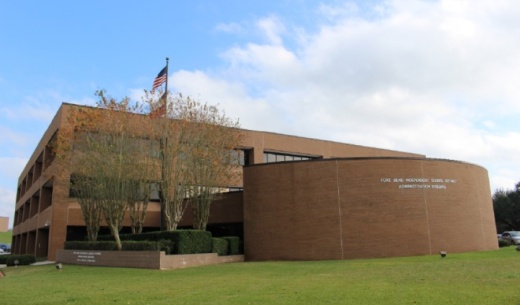The Fort Bend ISD board of trustees adopted a tax rate of $1.2402 per $100 valuation for fiscal year 2020-21 during its Sept. 21 meeting. The approved rate is nearly $0.03 less than the FY 2019-20 tax rate and down approximately $0.10 from the FY 2016-17 rate.
“In 2019-20, which is the prior tax year, the district maintained a low tax rate when compared to peer districts in the area,” FBISD Chief Financial Officer Bryan Guinn said during a Sept. 14 hearing on the rate. “This speaks to the district’s ability to utilize taxpayer resources in an efficient manner. ... It's very likely that the [2020-21] total tax rate will remain among the lowest in the area.”
For Texas school districts, tax rates typically have two components. The maintenance and operation rate pays for daily operations and facility maintenance, while the interest and sinking rate pays for debt incurred by the district to pay for facility construction and upgrades, according to the Texas Education Agency.
FBISD's maintenance and operations rate for FY 2020-21 is $0.09502 per $100 valuation, a decrease of $0.0398 from the previous year. Its interest and sinking rate is $0.29 per $100 valuation, an increase of $0.01, which was approved by voters during the 2018 bond election.
The adopted tax rate supports FBISD’s $737.5 million budget in the general fund and $126.5 million in the debt service fund, which the board approved June 15. The approved budget did not include raises or step increases for teachers or staff.
Despite the lower overall tax rate, Guinn said the owner of a home with the average $286,756 of taxable value will pay approximately $31.73 more a year in school-related property taxes due to rising home values in the area.
Furthermore, this is the first year the district is subject to a tax rate compression under House Bill 3, which passed during the 2019 Texas legislative session, Guinn said. This means the district can only take advantage of 2.5% of property tax growth. However, FBISD’s net taxable values grew by 7.1%, Guinn said.
Under HB 3, the state will make up any revenue loss the district experiences this year by not being able to tax the growth above 2.5%, Guinn said.
“Although the tax rate is being reduced, it's not going to result in less revenue for the district,” Guinn said. “The reduction in property tax revenue will be offset by an increase in state aid. Again, that is a part of House Bill 3 that was approved in the 86th legislative session.”
However, because of state revenue shortfalls due to the coronavirus pandemic, district officials and trustees worry the state may not be able to fund education at the same rate in the future.
“This next legislative session is going to be very interesting to follow how school funding will be handled after the results of the pandemic and financial forecasting not looking so good,” trustee Grayle James said.





